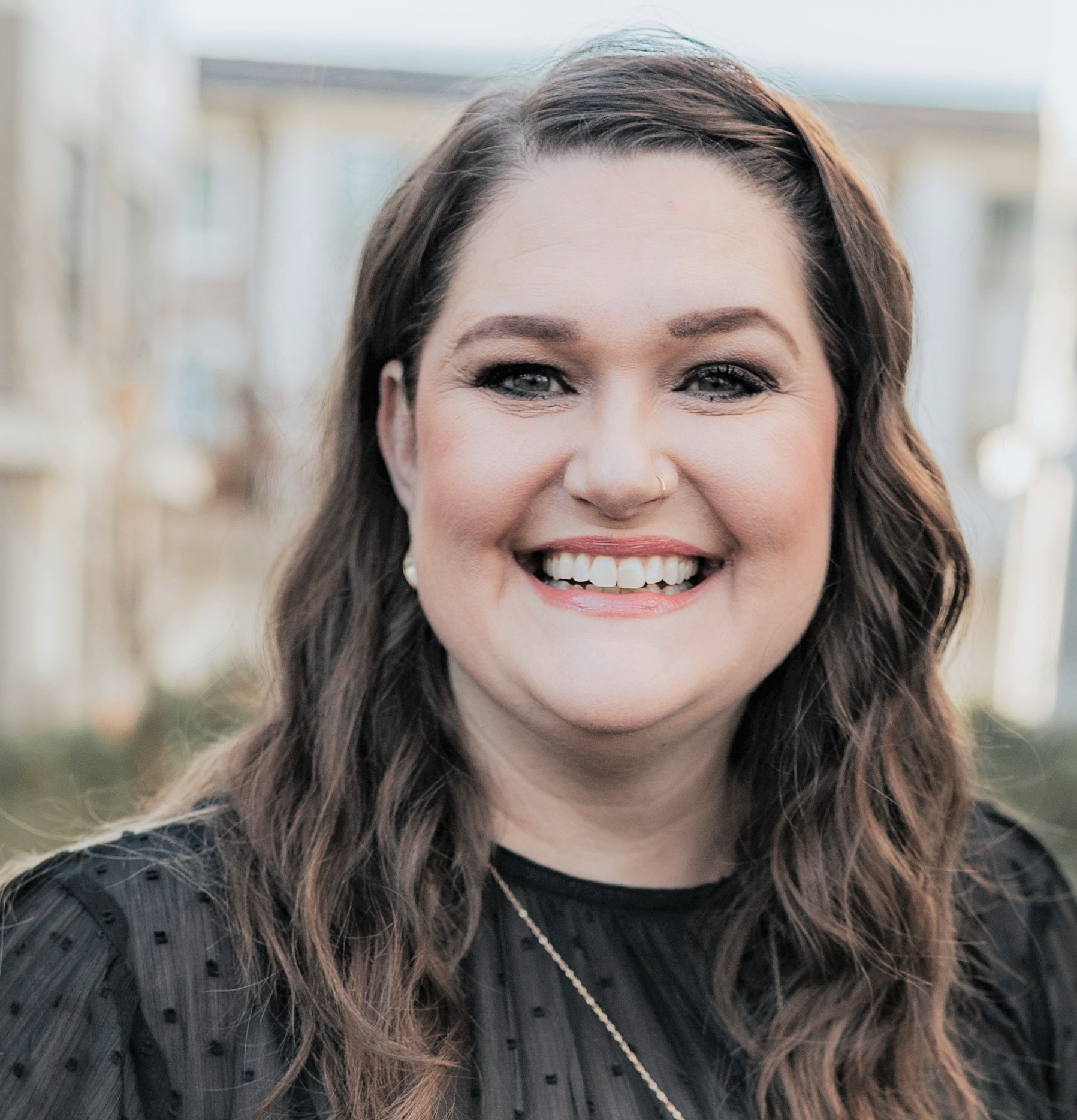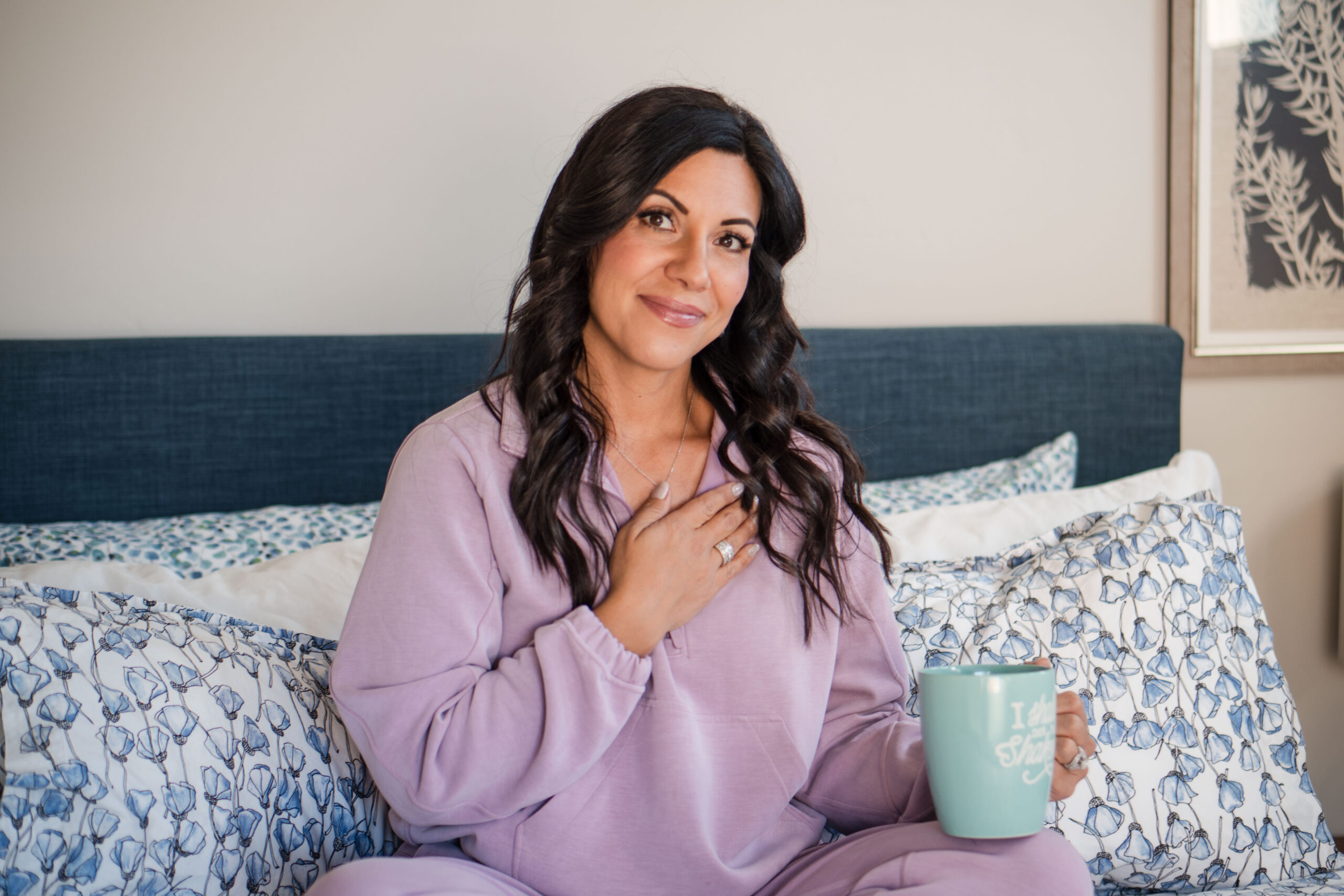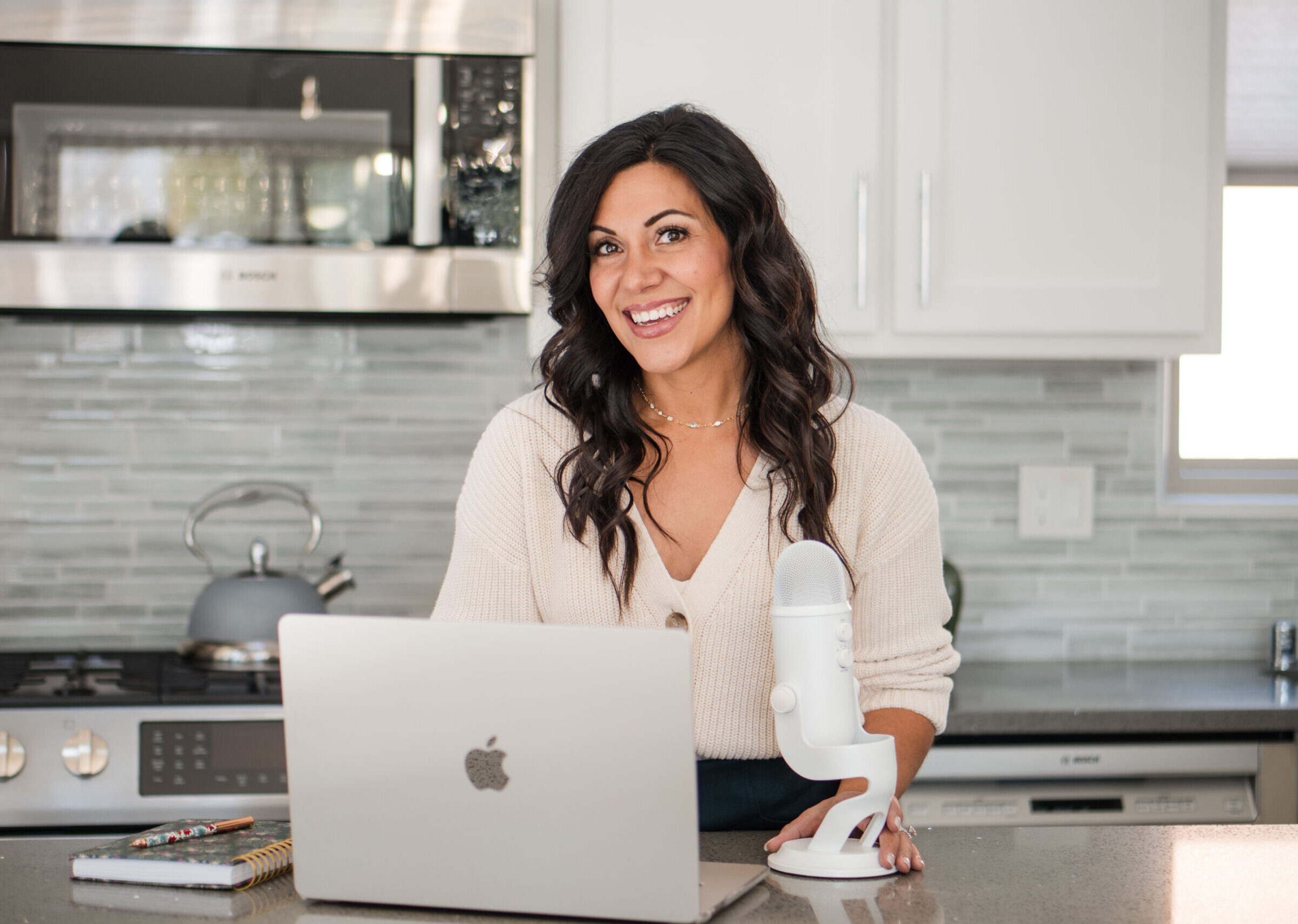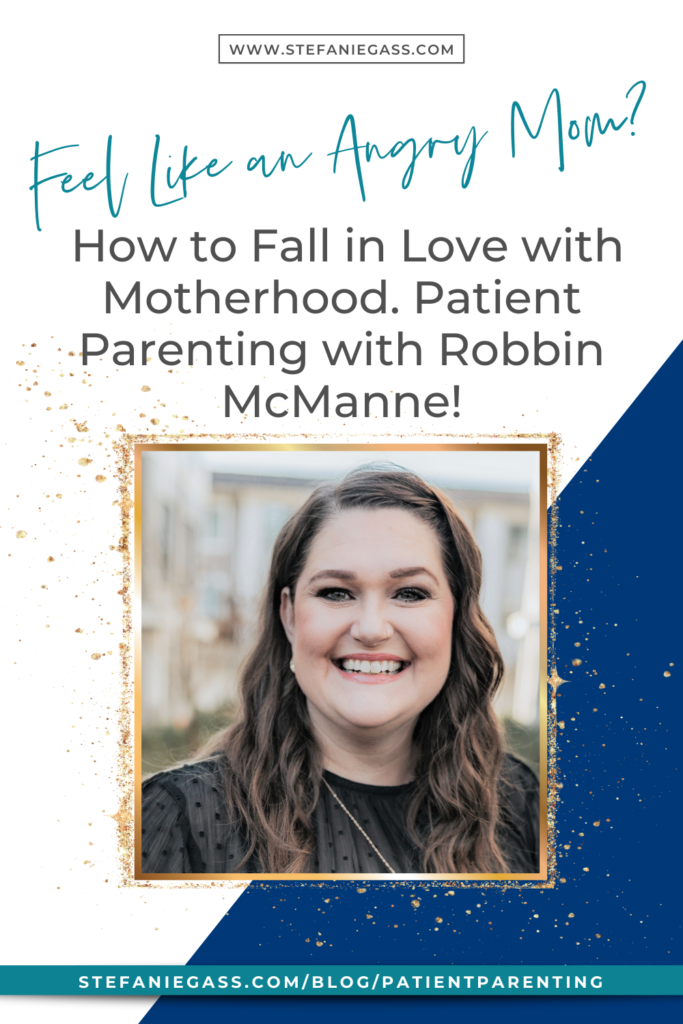Learn to make income with a podcast
Join the 5-day training
Profitable Podcast Bootcamp
Come Hang Out!
Learn How to Consistently
Make Income With a Podcast
For Faith-Led Entrepreneurs
Join 5-Day Profitable Podcast Bootcamp!
Podcast Launch Checklist
Steps to start and launch a podcast from start to finish
Should You
Start a Podcast?
TAKE THE QUIZ
AND FIND OUT
STEP BY STEP PLAN TO START YOUR ONLINE BUSINESS
Complete Business Blueprint
Is My Group Coaching Program Right For You?
Choose the option below that best describes you!
Have a question?
Ask Stef a question about her resources
or program!
Will podcasting make you money?
Play around with my Profitability Calculator!
Meet Podcast to Profit Alumni
Students and graduates who are profiting from their podcasts
from psalm chapter 18
Spiritual Battle Plan
defeat the enemy, strongholds and spiritual warfare
Hey Mama!
Have you ever thought, ‘wow I feel like an angry mom’ or ‘I need more patience with my kids’ or ‘I wish my kids would listen and behave’? If you have (and I know I have…..) then today’s episode is FOR YOU. I brought on Patient Parenting Expert Robbin McManne from Parenting for Connection who is so gifted at helping parents parent with purpose, patience, and intention. She is truly a gift and I learned SO MUCH in this interview.
We discuss WHY motherhood is so hard (spoiler: It’s not actually our fault!), how to transform your experience as a mom, and how to have well-behaved kids that feel seen, heard, and appreciated! I took so many tacticals from this conversation and I pray it blesses you BIG.
Connect with Robbin, here!


FULL EPISODE TRANSCRIPTION:
(00:01):
Hey, girl! Welcome to another episode of The Stefanie Gass Show. Today, I have a fun treat for you. We are actually doing a deep dive into patient parenting. So much fun. I rarely take straight up interviews like this because I like to know the person, I like to personally invite. You guys know I typically bring on students, prior students of mine, past students to share success stories and to really highlight where they have gone and how far they have come.
(00:32):
But today I really felt compelled to bring Robin McManne on. She is just so cool. You guys are gonna love her. She’s such a ray of light and she’s a certified parent coach. She’s also an author, a fellow podcaster, a speaker, and she helps parents all over the world to help them build more connection and find more joy and cooperation through patient parenting.
(00:56):
Yes. And amin to this! She’s truly a patient parenting expert. She calls herself a former angry mom and that for over 12 years, she was sitting in that angry space, trying to juggle full-time corporate, being a mom, being a wife. And then she finally had this absolute breakthrough when she realized that you can build strong, healthy parent-child relationships to help your kids grow up with resilience, competence, and strong emotional intelligence.
(01:24):
Why? So that we can get our kids to listen without threats and consequences. So if you guys have kids that are like 12 and under, please listen to today’s show. It’s amazing. You’re going to love Robin McManne from Parenting for Connection.
(02:44):
Before we start talking about our kiddos, let’s talk about you, girl. Cause I have some special gifts for you. I’m so excited to announce that I have completely redone all of my freebies. Y’all I’m like on a roll. I finished updating all the courses. So here for that. We did the branding this year, the website’s done. Everything’s so redone. I’m super excited about it. And the last thing was these freebies, which I finally finished.
(03:13):
So let me start with those of you who are new around here. You need some Clarity on Your Calling, you’re trying to figure out what your thing is. You’re trying to figure out how you can work from home and build a profitable online business. Two free gifts for you. Gift number one is that getclarity.gr8.com or just head to stefaniegass.com and click on the free workshop button.
(03:37):
This is a four step clarity framework, a complete training, 45 minute workshop training. I have added a awesome workbook to that training for you to really help get Clarity on Your Calling. So if you’re like, well, what do I do? How do I do it? And how do I make money from it? This is for you. Again, that’s at getclarity.gr8.com or at stefaniegass.com click on the free workshop button.
(04:04):
Number two, you want to build this business, but you are overwhelmed with how to do it. What are the steps? What do I do when, and you don’t want to follow a million people’s advice. You just want to have one specific step-by-step framework of how to build your business from the back end. I have put together for you a business blueprint that will take you through 13 steps of building out a business.
(04:31):
Guys, this is everything from, you know, setting up your business legally to when to create a website, to when to start the podcast. Like it tells you what to do when step-by-step business blueprint, build a business blueprint, super excited for you to grab that one. And that freebie is at thebizblueprint.gr8.com. Or you can get everything stefaniegass.com. If you want to go directly to this link and grab the business blueprint, it at thebizblueprint.gr8.com.
(05:06):
Now, my second free gift is for those of you who are ready to start your podcast, but you don’t know what you don’t know. You’re like, I need me a good checklist. I have a podcast launch checklist that actually has so much more than how to launch. It has had a plan, how to publish and then how to promote your podcast. Plus five podcasting bonus trainings for you.
(05:28):
So if you have clarity and you’re ready to start that podcast, but you’re not ready to leap into my course yet, go and grab the podcast launch checklist and really find out what that step-by-step action plan is going to be for you and that can be downloaded directly from podcastlaunchchecklist.gr8.com. Enjoy all the free things, guys!
(05:52):
I’m gonna have one more free thing for you, our community, if you are not friends with us, me and my amazing, incredible team and all the women who are part of this community, you are missing out. They are faith led, God-centered, ambitious on fire, for the king on fire to bring glory to God through their calling work and using their giftings to do more better, in less time. You got to come be BFFs with us, girl. We need you in our community. That is that Bit.ly/successsupportgroup. We’ll meet you there.
(06:24):
All right, let’s talk patient parenting. Hi, Robin! Welcome to the podcast!
(06:31):
Hi! Thanks so much, Stefanie. I’m so happy to be here!
(06:35):
This is so exciting because you know, my ladies always hear as talking about trying to parent, trying to run these businesses, trying to balance all the things and I think it’s so fun instead of going from this entrepreneurial lens, which you are one, which is amazing, but really you’re a parent coach. So I’m like how great that we can have a parent coach on to really help us navigate the realities of building businesses and raising kids.
(07:03):
Absolutely. And I know that when there’s problems at home or their struggles with patient parenting, your business doesn’t thrive. So it’s sucks so much of your time and your energy and your attention. So it’s good to know these things so that everybody thrives cause I think your business is also your baby.
(07:26):
So start us off with, how did you become a parent coach? Tell us just a little bit about what you do.
(07:30):
That’s a good question. I actually come from a corporate background in marketing and I really struggled when I first had my first son and it really started right away. It started before he was born, unfortunately. I was 11 days overdue, I had two days of labor that ended up in a C-section, couldn’t nurse him. I couldn’t comfort him and calm him. And so the shame spiral started from there and I already said, oh, I’m failing already.
(08:02):
And my son has some extra stuff going on that, you know, took us years and years to really get to understand. And so fast forward to today, he’s a 16 year old and I have a 13 year old as well. I now know more about what’s going on with him, why it was so difficult back then, but I spent years and years as a really angry mom who really, really struggled to not really bond well with him.
(08:28):
And also, I thought I was the worst mom and he triggered me in a way that I had never been triggered before. This little person who came to me by the way, with a full head of red hair, which was like the cutest thing ever, and he was just challenging me in every possible way. Making me second guess myself, you know, I wasn’t calm anymore, I wasn’t confident at all in my patient parenting.
(09:00):
And I really preferred work to being with my kids and being with him because he was just so hard. And I knew with every cell in my body, with every part of who I am, that this is not okay. Like I knew there must be a better way and I sought help and I wasn’t getting the help that I needed. I went to psychologists, you know, we had him assessed and all really came back to me being the one.
(09:28):
And I thought like, this is not good enough. So I found the world of intentional and patient parenting. So it’s conscious and patient parenting, you know, whatever you want to call it. It is where you are really understanding that your kid’s behavior always has a reason and it’s really up to us to seek to understand it.
(09:52):
And then, there’s also looking at me. Why did I get so angry? Why was I so angry? So when I first hired a coach for myself, I was able to unravel all of that. And I could finally show up for my kids the way I wanted to, and that the transformation in me personally, and in my kids and their behavior was so undeniable that I left my corporate job to do this work.
(10:22):
So talk to me about, I think this is really cool, two things that you initially said was you felt like an angry mom and then this, the shame then that came along with, well, because I’m an angry mom and I’m a bad mom because I know that no matter who’s listening right now, whether it’s once in a long while or whether it’s all the time, we’ve all felt like an angry mom at some point or another. What, where do those feelings typically come from Robin? Why is that happening? Why are we not living in kumbaya land over here? What is this mom syndrome, what’s going on?
(10:59):
I’m so glad you asked that. I don’t think I’ve ever been asked that question before. So thank you for asking it in that way. Here’s what I know. I, for first and foremost, as women, as girls, we grow up and aren’t we always told, oh, you know, here’s a baby Dolly for you so you can be a little mommy. And, you know, we’re sort of like groomed to be moms from the start, but we are never taught how to be moms.
(11:26):
So when you think about it, we study, we do all this for our careers and I would argue that raising a child is the most important job that we do, of course, but I mean, how can you deny that? I also believe if we want to change the world, we start with patient parenting because that is our future.
(11:50):
So here’s the thing, you are blessed with this beautiful child and you don’t know how to do it. All you know is how you were raised. And then if you don’t do it right, or if things aren’t going the way you want them to look, postpartum is real. You know, all of that stuff, it’s hard. And nursing is so hard. It is painful, it doesn’t work sometimes. And so that’s what happens to us as we’d internalize all of that, we say, well, then I must be bad. I must be failing as a mom.
(12:27):
And then that becomes our internal dialogue. And then we label our kid’s behavior and say, well, maybe my kid is, you know, a bad kid or maybe, you know, my kid is such a whiner or she’s so bossy or he’s a bully or whatever. Because we’re trying to make sense of it. And so we go and we label because we don’t know what else to do. And then we see that behavior.
(12:52):
And actually we’re scared. We are so scared because we see this behavior now and we can’t help but catapult ourselves into the future because this relationship is for keeps. This is a relationship forever. And we catapult ourselves into the future that we don’t know anything about. That is not secure. We have no idea what’s really going to happen.
(13:13):
And we say, with this is happening now, what’s it going to be like, and when my kid’s 13, what’s it going to be like when my child is supposed to be going to university and that’s where the anger comes from. Really when you look at anger, anger is either fear, it’s frustration, or, it’s hurt. I think we feel all those things at once. And that’s what anger is.
(13:38):
That is so good. Like, it’s like a world right now, you guys, because hearing, I never thought of it that way. Either Robin, like we were never taught to be moms, but yet we’re expected to be something that we have no idea what to do. And all we see is this worldly perspective of what it means to be a mom, Instagram, Pinterest, these hiding the realities of it. Nobody’s really talking about the realities of, Wow, I screamed at my kids today and I’m feeling extremely shameful about that. How about you?
(14:09):
You know, everybody’s hiding that. So I really love that you’re shedding this light on, or you’re putting the spotlight on the fact that we were never taught how to be moms. And I think what you started to allude to was there was something missing, which was this intentional, patient parenting handbook that somewhere exists in the world. Like, what is that? And how do moms begin to learn how to steer it with this intentional peaceful, like, what is that?
(14:41):
So when I talk about the work that I do, I look at parenting on two sides. I use my hands to talk. So on two hands, right on the one hand, we look at our kids and we look at their behavior. We look at their behavior and we no longer look at it as good or bad. So it’s not good or bad. It just is.
(15:01):
So I look at it as neutral and I know that’s not easy to do so, like, I’ll just say, that can be hard. Right. But that speaks to the other side of patient parenting. So I’ll get to that in a second. So when we look at our kids’ behavior, we have to look at it as neutral. But we look at it as them either having a need that isn’t getting, met a feeling that’s unvalidated, or they don’t have a skill to do better yet.
(15:26):
And that speaks to the fact, all three of those speak to the fact that our kids’ brains are not fully grown when they come to us. And they continue to grow until their mid to late twenties. So we have to understand that they don’t have a skill to do it yet is very real. And they don’t understand their emotions, can’t articulate them and don’t know how to deal with them. So it comes out as behavior we want to change.
(15:51):
So we just have to get to what’s underneath. And so then the other side of it is understanding us as a parent, understanding why do I get so upset? Why do I get so triggered? And a lot of times it comes from our own childhood. Our kids are making us feel through their own innocent behavior. They’re making us feel how we felt as a child, powerless, nobody’s listening to me, disregarded, unloved.
(16:22):
Your child rejects you and says, no, I don’t want a hug right now. Oh my gosh, I feel unloved. I feel rejected. And then we start to yell at our kids and get mad at them, but actually yelling at the wrong person. It’s that in our own childhood. And so it really matters that we look at that and we heal those wounds.
(16:42):
And this is not about throwing our parents under the bus. They did the best that they could. We love our parents. They just didn’t know what they didn’t know. So, it’s really about taking those two sides. and by the way, with parents, number one for managing anger is taking care of yourself. You know, burnout is a real thing and we need to take care of ourselves. We absolutely do.
(17:07):
So, with that said, we take both sides and put them together and build relationships with our kids based in mutual trust and respect, because we are very good at disrespecting our kids. And communication and understanding so that anytime we’re communicating with our kids, or they’re saying something we don’t like, or they’re refusing to do something instead of reacting, we just say, okay, what’s going on? How come? And then we’ve got to work it out. It’s not about punishing. It’s not about shaming or criticizing is just like, Hey, how come? Like, let’s figure this out.
(17:44):
This is so good. I don’t even know, y’all. So much gold right now. We’ve got these two sides, the kids’ side, and then really looking at not good or bad, but the why’s of it. So what’s the needs unmet? What’s the feelings that they’re having? And I think, to give you guys a visual, and Robin can help me through this, let’s say you’re a work from home mom, and you have a four year old and the eight year old.
(18:08):
Let’s just go, let’s talk about my life. I just realized I’m just talking about myself. Those children are, the eight year olds antagonizing the four-year-old constantly and the four-year-old, you know, obviously when you’re working is constantly mom, this, that. So like looking from that perspective, I think, well, I don’t know about the eight year old, but I know what the four year old it’s they just want your undivided attention.
(18:40):
There’s something about split attention that didn’t sit with them. And I can tell you right now, from my own childhood of a dad who was always working and I have a very high achievement based love thing that I struggle with all the time. And again, no shame to them.
(18:57):
He did the best he could, but it was achieved, do well and be quiet. That’s just the way it was. And so sometimes I find myself in that spiral of like, achieve, do well, be quiet. And then I’m like, oh no, I am not playing that game. You have a voice here. I love you for who you are and what you do. And like, so I’m aware, but it constantly creeps in. Just using your patient parenting genius, talk to me about what’s going on in that situation.
(19:23):
So I completely get it and it makes a lot of sense. So with your four-year-old, yes, when you said that split attention kind of creates them craving you more, it’s absolutely true. Because what we don’t realize is that our kids feel this anxiety the second we pick up the phone, they’re like, she doesn’t have her eyes on me, you know, it’s, I I’ve broken proximity to my child.
(19:47):
And so then they start to get nervous. So that’s why, as soon as we’re distracted, they start to mama. And so it’s real. And this will happen to me when I’m on calls with my clients. Their kids will come in, you know, we usually try to do it when their kids are asleep or they’re at work or whatever it is, the parents are at work.
(20:08):
So what we do is we need to just say, okay, you know, take that phone call and say, okay, hang on just a second. And then go to your child, make a connection with them and say, I know you really want mommy right now. You really want mommy right now. I know you want mommy. So I’m hearing you, I’m validating what you want. I’m really validating it. And I just need you to go draw a picture over there for a minute and I’ll be right back with you.
(20:40):
Because you just want to make them feel Okay, she knows I’m still here. It’s okay. And at four, they don’t know, they just don’t know, you’re everything. An eight year olds, I can tell you what’s going on with the eight year old. So there is this sibling dynamic, where really it comes down to sibling rivalry is rivalry for you. And so your eight year old had four years on her own with just you. And now there’s a replacement or so she thinks.
(21:15):
And of course, you know that you probably have this four year old because you wanted a playmate for your eight year old, you know, that there is enough love to go around, but it doesn’t matter because the eight year old doesn’t feel that, doesn’t understand that. She thinks, oh, you don’t need me anymore, in they’re in their sort of primitive way of thinking. And so this child, this four year old is sort of her rival. Rivals for you.
(21:44):
And so it’s easy for me to like trip her or take her toy or whatever, because I’m mad at her because she took mommy away. You think of the first few months, you know, where the baby needs mommy so much, where everybody that comes over is all over the baby. And it’s like, what about me? I used to be the star of this show. But what happens too is for the younger child, they say, well, how could you ever love me as much as my older sister who got to the party first? It happens on both sides.
(22:12):
And so one of the things that you can do with your eight year old is really be curious about what’s going on with her. And this is a bigger conversation so I won’t go into too much detail, but really understand that when she does that, it’s really about you and for you to say, Hey, babe, you know. So here’s what we do, there’s always the one child that kind of drives us a bit more crazy than the other one.
(22:38):
And we usually call their name over and over and over again. So we would say like, okay, Sarah, come on, Sarah. It’s always her. I have the one too. I have two boys and I have the one. It’s always his name we call, but I don’t call anybody’s name anymore. I’m just like, okay, hang on. You guys need to talk to each other. I’ll help you out. And just say, Hey, you know, eight year olds, ell your sister, in words, what you’re needing and what you’re feeling right now.
(23:09):
And then, okay, did you hear that four year old? Your sister said she’s needing this and she’s feeling this. What are you feeling and needing? Four year old’s going to have a little bit of a harder time, because she’s just so little. But you know, you want to just get them communicating with each other and never pick a side, never play age roles or gender roles. None of that. You just go to the situation neutrally.
(23:30):
And the one thing that I’ll say is that the problem is not with the people, it’s the situation. So you’re not taking it out on our kids. It’s just a situation that needs to be figured out like a puzzle. That’s it?
(23:42):
Super helpful. So when I think to, in that first example, something I wanted to bring full circle for the girls listening, when you said go color a picture and I’ll be right back to the four year old, I think it’s super important for you all to understand that probably this anxiety is coming because when you say that, do you actually do it?
(24:00):
Do you get off the computer? Do you get off the work and actually go make good on your promise? Because that’s probably, cause even for myself, you know, I’m like, Hey, I’ll be right there. It’s not right there. What if it’s 10 minutes? What if I forget? Well, now I’m rooting anxiety inside of him because what I’m saying is not true.
(24:19):
Exactly. That’s brilliant point. You’re so smart. You were so good. So you got your finger on the pulse because actually what I say about that is we become figures of instability. And so what happens is our kids don’t fully trust our word. They don’t trust us. And so then they start to hustle for our attention. And they are not sure that we need it so that mum gets louder and louder.
(24:48):
And then it turns into, maybe she pushes something over and break something now, maybe she, you know, yells at us, says mom, I hate you or something like that. And so that is such a good point. Yes, our word matters. You know, when we say we’re going to do something, we have to do it. Because if not, your child is going to start running the show, just because of their own anxiety. And so that we don’t want, because then that puts extra stress, overwhelm and anxiety on your child. And that is not good for their development.
(25:24):
So let’s go through some tacticals of how can we change these behaviors in this example, like one of the things I’ve tried to do, Robin, is let’s say I’m Voxing a friend or someone. My kid, of course, kids in the background, we’re going to go pick up the other kid and I’m Voxing a friend cause the drive times when you catch up on the Voxes, I talk to those for a bit and then I’m like, OK, mom is going to do some Voxes.
(25:45):
And it’s like, mom, I have a question, mom. So what I’ve been telling him is if I’m going to finish this one message, because I’m right in the middle of it, as soon as I’m done, I’m going to talk to you. I finish that Voxer like I promised and then, okay, Landon, what did you need? He’s been great with that. He’s like, oh, okay. Cause he knows, cause it’s easy for me to forget and go to the next Voxer.
(26:08):
But because I’m saying it so intentionally out loud, I can’t forget the promise that I’m making to him in that moment. So that’s one tactical I’ve been playing with. What else comes to mind for you for these moms who are like, they’re experiencing this because they’re juggling the working at home, they’re juggling the children’s behavior, the anxiety about mama working, you know, which we can’t avoid fully, I think, but we can, and I want you to speak to this next, we can transition from work mode to mom, full family present mode. So we’ll talk about that too, but any tacticals that come up for you?
(26:40):
So first of all, what you’re doing is absolutely perfect. Like, I couldn’t have said it better myself. I love that. You’re explaining to him exactly what is happening and then you’re showing him that you can be counted on. That is really vital for our kids, they need to know that we are their best bet. We are the big people in their lives.
(27:01):
And they’re always looking to us to know how to act and to know, how to be, how to think and all that stuff. So, here’s the thing though. Our kids are not always going to get what they want. We can’t always, you know, be there for them when they want us to be there. And so what that requires of us is empathy to say that I can put myself in your four year old shoes, looking at the situation in a way you must be looking at it and say, you know what?
(27:32):
That is hard. It’s hard that right now you want that lollipop so bad and I can’t give it to you. And that, you feel like that’s going to ruin your whole day. Cause I’m four and I don’t know anything about anything much. Like that to me is devastating. And so I get it and you know what?
(27:54):
You might need to cry about it. And that makes sense. Go for it, buddy. You’re not trying to change them. You’re not trying to talk them out of it. You are just saying, you know what, bud? Yeah. I get you and that is hard. You’re disappointed. So naming the feeling and empathy.
(28:12):
Can I say something on that empathy part? And I think that empathy, one that you talk about that takes me back to the other side, where you talked about the parent yourself and thinking about why am I the way that I am and responding the way that I am? Well, if I was to cry over a sucker and you know, that would be absolutely not allowed at all ever.
(28:31):
And so it’s this embedded in me of like, man up, you’re not going to have a sucker, get over it. Like, I’m kind of a tough cookie when it comes to things like that. And it helps me so much to hear examples. Like the other day my son would drop off the four-year-old at preschool and he didn’t want me to go. He was upset and he was crying and I’m kinda like, love ya, you know? See you!
(28:52):
And then miss Beth is like, Stef, just sit with him in line for a moment. Then I’m listening to Ms. Beth, tell him Landon, I see your tears. And I know that you’re really feeling so sad that your mom’s going to go, she’s going to be back in four hours. And I was like, oh, it was like this. Cause I don’t know, you know, like, it’s great to hear these examples. So how can we grow in that when it’s not something natural inside to beempathetic, to be this four year old mindset or this ten-year-old mindset? Like how do we practice that? How do we learn?
(29:29):
Well, that’s the work that I do with the parents that I work with, is to teach them those skills and those skills by the way, are so good to, because they’re universal. And by the way, a little hint for your son when you leave, tell him when you’re going to see him again, like in other words, do what Ms. Beth did only say, okay, so you’re going to go in, Ms. Beth is going to take you in, you’re going to do circle time, you’re going to do recess, you’re going to do blah, blah, blah, blah, blah. And then as soon as reading time is over, let’s say, that’s when you’ll see me again, that’s when I’ll come pick you up. So you’re queuing in the hello to the goodbye.
(30:10):
That’s good.
(30:11):
Yeah. So that will really help. When it comes to that transition piece though, you know, and I’ve talked about being intentional, here’s, you have to take a moment to really be intentional. Let’s say we’re going from the office and, you know, we have a designated office space, which is very helpful to sort of have those boundaries around where you work so that kids aren’t running in and out all the time, but depending on your situation, who knows.
(30:41):
And then set yourself a sacred time to be done, a time that you promise yourself you will be done, that you are done no matter what. If you were getting paid hourly, you would be done, you know, you’d work from nine to five. There’s no overtime. You would end at five cause like I’m not staying a minute longer cause I’m not getting paid.
(31:02):
That kind of mentality. So if you decide that it’s four o’clock, it’s three o’clock, it’s five o’clock, whatever time is the time for you, you decide, okay, that’s when I’m done. And what happens is, we actually are more productive by the way, because of, you know, it’s the Parkinson’s law that says that time expands or the work expends at the time you give it. So at two o’clock you’re like, oh, I better hustle, I got till four.
(31:33):
So then you take your time to stop work. Fold everything up, you know, whatever you need to do. But then I want moms listening to check in with themselves. I want you to just say, okay, I’m just gonna close my eyes for a second. I’m just going to check about what I’m feeling. What am I? like am I feeling agitated? Am I worried? You know, did a client upset me? You know, what’s happening.
(31:57):
Right now to me, with me, all of that stuff and acknowledge it, just notice it and acknowledge it. And then from there, I want you to set an intention for how you want to show up for your family. So my intention is to not get frustrated over the little things. My intention is to sit with my son and play Lego with him and find out all about his day.
(32:25):
My intention is to talk less and listen more, you know, maybe my intention is to, just because that’s all I can do right now, is to just not bring work into my home life. And so, one of the things that I like to do too, because I’m sure you are, and everybody listening is like me too as an entrepreneur, I never stopped thinking about my business. And so I just have these small little pads of paper that I got from the dollar store.
(32:54):
And I just have them near me so that when a thought comes up, that I don’t want to forget, instead of getting all stressed about, oh, I better go check that email. I better grab my phone. I just write myself a little note. And so then when I have a minute, then I can go and, you know, do that Voxer like you I’m on Voxer or send that email or that text or follow up with that client.
(33:14):
So that I can just let the thought come and jot it down and then let it go because that helps me be fully present. And what I know is that if you’re not fully present, and let’s be honest, there’s an ebb and a flow, even when you’re with your family, you know, you’ve got to do stuff and I get that. But when you can’t be counted on like I said earlier, our kids’ behavior will show up in a way that we want to change it, which fuels our anger and fuels frustration.And then that’s when we spiral.
(33:48):
That’s so good. So I have to recap those three things you just said. The first one was, my friends, seriously this one is so important and I struggle with this one a lot as well. So, definitely learning as much as you all today, but number one is having a sacred time to be done. I think that right there is like a mic drop moment. Hit that time and let it be. That has to happen. It has to happen every day.
(34:14):
I always recommend that they don’t do any work on the weekends either. And I know it’s so hard when you’re a new entrepreneur and you’re like, but I’m trying to make this happen. I’m trying to be successful. And I think there’s fruitfulness in this revelation that we are first called to be moms and wives. And we were first called to steward our homes and, and God’s kingdom.
(34:35):
And then secondly, we have this calling work in our businesses. So let that be secondary in your calendar. You know, I love that. And then two was before you go head into the wolves, you know, you’re like, I think that’s so good and that’s not something I’m asking myself. It’s like, okay, I’m done. Let me go and check my kid box. But like, what do I really want with them? What do I want to experience with them in this 30 minutes that I have? I love that question.
(35:06):
And then just have your notepad in the kitchen so that you don’t also have to carry your phone. So that’s another one, Robin is they’re carrying their phone to write the reminder, put the phone away too, and just have the sticky note or the planner and put those little ideas that pop in. Those are all so good. So this is blessed me big time today. I know that everybody’s learned so much from you and they’re probably like, I need some Robin in my life because she’s got to school me on her ways. So where can everybody find you? And I know you have a book. Tell us a little bit about how they can connect with you.
(35:38):
Thank you. I’m so happy. I really, Stefanie, have so enjoyed talking to you. You’re incredible, no wonder people love you so much. So, in terms of my work and where you can find me, so I do have a book called The Yelling Cure and you can find it at yellingcurebook.com.
(35:56):
I also have a podcast called Parenting Our Future, and you know, I’m so passionate about this and I have brilliant guests on. You are going to be a guest, which I’m so excited about as well. So you’ll get all Stefanie on my podcast too, but here’s what I do. I am so committed to helping moms in this area, because I think we need to shed the guilt and shame and all of that I haven’t companion site to my podcast is called the Parent Toolbox.
(36:24):
And all of my guests give a gift and give a resource and a tool, including my own tools, like how to get your kids to listen the first time, what to do in the face of a meltdown, how to stop it, how to reframe your child’s behavior so you see your child in a new light. All of that stuff is for free www.parent-toolbox.com. So, that’s me and everything that I do is at Parenting for Connection. I know that’s a lot, I’m at Parenting for Connection, is everything about me. So you can find everything that I do there.
(36:57):
I’ll put some links for y’all in the show notes, and you can go dive into intentional patient parenting. This has been amazing. Thank you so much, Robyn.
(37:05):
Thank you, Stefanie.

Learn How to Consistently
Make Income With a Podcast
For Faith-Led Entrepreneurs
Profitable Podcast Bootcamp
READ MORE

Here are 6 ways I’m scaling my business to 7-figures God’s way and not the world’s way, all without social media.

READ MORE
It’s been a hot minute since we’ve had a conversation around whether podcasting is right for you. A few people recently asked me, “How do I know for sure that podcasting is right for me or my business model?” That’s what I will discuss with you today.

READ MORE
As a 7-figure Christian business owner, Stef shares biblical business advice straight from the book of Proverbs.
READ MORE

This post is for my MLM Girlies or anyone marketing a personal brand or physical product. It’s a live coaching session with one of my students about having a personal brand versus product branding, and what this might look like for you.

READ MORE
Join me as I chat with Podcast to Profit graduate, Monica Topete, on going from burnout to a top 2% podcast and hundreds of organic leads.

READ MORE
Have you wondered how to use the Bible in your business? What if I told you the best strategy isn’t another mastermind, launching another thing, or listening to another podcast? The best strategy comes from knowing how to use the Bible.
READ MORE

Join Stef as she discusses five ways you can hear from God in your business. The Holy Spirit will lead you if you are paying attention!

READ MORE
If you’ve ever wondered how to go from zero subscribers to millions with your podcast, this post is for you. Whether you’re just starting with no subscribers or you’ve already launched but are struggling to grow, I’ll break down all the things that will help you get your podcast to flourish and be that vessel of growth that you have been praying for.

READ MORE
I’m talking to my Podcast to Profit graduate about how her podcast became discoverable around the world after she joined my program.
READ MORE

Have you ever wondered how much money a podcast with just a thousand downloads can make? It’s probably more than you think, but not in the method you think.

READ MORE
Join me as I coach my Podcast to Profit student on whether she should rebrand her podcast or stay true to what she already does so well.

READ MORE
As Christian entrepreneurs, we must pray to God and not run our businesses on our own. We must position God at the center of every decision.
Come Hang Out!
Learn How to Consistently
Make Income With a Podcast
For Faith-Led Entrepreneurs
Join 5-Day Profitable Podcast Bootcamp!
Podcast Launch Checklist
Steps to start and launch a podcast from start to finish
Should You
Start a Podcast?
TAKE THE QUIZ
AND FIND OUT
STEP BY STEP PLAN TO START YOUR ONLINE BUSINESS
Complete Business Blueprint
Is My Group Coaching Program Right For You?
Choose the option below that best describes you!
Have a question?
Ask Stef a question about her resources
or program!
Will podcasting make you money?
Play around with my Profitability Calculator!
Meet Podcast to Profit Alumni
Students and graduates who are profiting from their podcasts
from psalm chapter 18
Spiritual Battle Plan
defeat the enemy, strongholds and spiritual warfare
look around
© STEFANIE GASS LLC 2026 | ALL RIGHTS RESERVED | SITE CREDIT | LEGAL
Come Hang Out!
Come listen to a top 20 podcast for Christians who want to grow a simple, successful online business.
Come listen
to the go-to podcast
So glad you're here!
Visit the resources section and find out which software I personally use and recommend. Become an affiliate, or discover other trusted resources I have to help you succeed on your business and faith journey.
Check out all my recommended resources
including software, affiliates, and freebies.
Read the latest over on the Stef Gass Blog. Tons
of articles to help you succeed in life and business.
Meet Stefanie and learn more about her life, journey, failures and family. Plus, a glimpse of her amazing team.
Book Stef for in-person or virtual events! She will
inspire and educate your audience with her training.
Find out everything your need to feature Stef—bio, photos, and details—ready to inspire and educate your audience
Meet some of the students who are profiting from their podcast
Contact us with questions, concerns,
testimonies, or requests here.
I can't wait to help you get clarity on your calling, grow your business, launch a podcast, build a course, or scale and get visible. Check out the Stefanie Gass School. No more frustration or overwhelm. Just a simple, step-by-step framework to get you where you want to grow.
Get clear on your calling in 4 weeks or less so you
can start your online business with confidence.
Apply for my 6-month group coaching program for podcasters! Build your offer, learn to sell, and scale.
Visit the Stefanie Gass School to discover what step
you're on and and learn which course is right for you!
Launch a podcast in less than 30 days! 12 simple
steps to go from idea to successful podcast.
Let's work together!
WORK WITH ME
Clarify Your Calling
Free Workshop
Watch this workshop and get
clear on your calling so you can start
an online business! Hop on this quick,
35 minute free training and map out
your next steps!
Podcast for Growth
Free Workshop
Watch this workshop and learn how
podcasting works to make money online! Find out why podcasting is the best long-form content outlet and how it can drive more leads than social media.




Leave Comment or Question Below